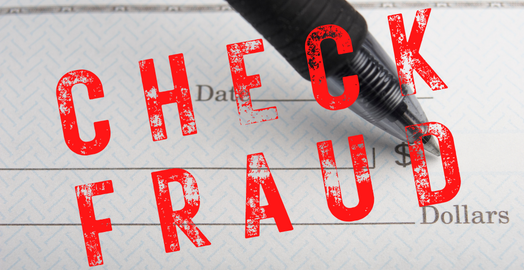Kids and Money
Teaching kids about money isn’t always easy. Plus, it’s hard to know when to start, and to figure out what specific things kids should know about money and at what age. In this video, we’ll do a high-level introduction to some key topics, like what do kids need to know and how we might try to teach them.
Young people today often appear to have little understanding of where money comes from and that the supply of it isn’t unlimited. It seems at times that kids spend money like it grows freely on trees. How are parents supposed to change this attitude? How can they encourage a practical sense of how much money comes in to the family and good practices regarding the use of money and how to make it, grow it, and keep it safe?
One of the first considerations is the major sources of information that influence kids in terms of how they learn and think about money. A poll of young people conducted by themint.org, a financial education website, found that more than two-thirds of those who responded indicated that their parents were the biggest financial influence on them. Friends were reported to be the biggest influence by 16% of the respondents. Various media, such as television, magazines, books and radio were named as the most influential source of money information by 14%. Teachers were the major influence for only 1% of those who responded to the poll. The fact that parents were the most important influence, by far, about kids’ thoughts regarding money, should give us all incentive to take this teaching responsibility seriously.
Themint.org also polled young people about why they asked their parents for money. Almost half wanted money for tickets to a movie, concert, or sporting event. About one-quarter of those responding to the poll said they asked for money for food or drinks. Almost 20% asked for cash to buy a toy, game, or phone. Only 15% wanted money for a school or educational item. And only 1% asked for money to give to or participate in a charitable effort. These aren’t particularly surprising responses. But, what’s really interesting is the response of young people when asked how often their parents said “okay” when they asked for extra money beyond their allowance. Nearly two-thirds said “always.” A little over 25% said “sometimes.” Those responding “never” or “never asked” made up only 11% of the kids responding to the poll. Maybe parents also have a little work to do of their own when it comes to handling money for the kids!
So, what are some of the key things that young people need to know about money and how it can be used responsibly?
A good starting point is cash flow. Where does the money coming in actually come from, and what happens to it after it’s received. A very basic concept for even some of the youngest children is that you need money to buy things. Some things are free (like samples at Costco, or music on the radio), but most are not. But, how do you get money? For most people, you earn money by working. A paycheck allows you to buy things, pay bills, and save for the future. To support the concept that you earn money by working, a parent can describe his or her job to a child. When out in the neighborhood, point out people who are working, like the landscaper or the bus driver. Explain that some people start their own businesses, like restaurants or repair shops.
Which sets us up to talk about the next item: learning the difference between needs and wants. There’s often a big difference, which is usually easily understood by adults, but not necessarily by children. It’s important for children to understand the difference between needing something and wanting something. We need clothes and food, because they’re essential to our everyday life. But, we may want a new toy or book. Wanting and needing are different, and it’s very helpful to know the difference. There are times when you have to wait before you buy something you would like to have. Sometimes, bills have to be paid before you can buy that item. Or, there might be a big expense later this month that will require a large amount of money, so you may have to put off a purchase earlier in the month. Handling money is about making choices.
The importance of saving and the power of compounding are extremely important concepts for children to understand, since these concepts will stay with them throughout their lives. Talk about keeping money at the bank, and the effect of interest paid on your savings account. Open a savings account for your child, and explain the process. A good way to begin a lifelong saving habit is to encourage kids to save ten percent of every dollar they receive. That amount is fairly painless, and won’t be noticed once the child gets in the habit of putting that small amount aside. You might also want to consider a “match’: you could add 15 or 25 cents for every dollar that is saved by the child.
How to responsibly use credit cards is another concept that kids need to know about. When using a credit card, money isn’t obvious, but money will be needed when the bill arrives. Kids need to be aware that using a credit card is the same as taking out a loan. If you don’t pay the bill in full each month, interest will be charged and you will end up, over time, owing more than you originally spent. So that $8 download of the latest recording from their favorite group can cost more if the bill isn’t paid in full when the next bill comes. Discuss how a credit card can be helpful in making online purchases or as a convenience in other situations. Talk about the pitfalls of making just the minimum monthly payments and how that lengthens the repayment time and can result in owing more than you originally charged on the credit card. Establishing and maintaining a good credit history is another skill that will be important throughout children’s lives.
A final topic of importance for kids to learn about is the relationship between earnings from employment and income taxes. For the teenagers that have recently gotten their first job and will be getting paychecks, this is a good opportunity to discuss the difference between gross and net pay. Point out that there are required deductions from pay, such as for taxes and other governmental charges. So, if the wage paid for their job is $15 per hour, they need to know that they won’t be bringing home $15 for every hour they work. This could also provide an opportunity to take advantage of the convenience of direct deposit of pay into the child’s bank account. Start down the road of increasing the child’s knowledge of investing by looking at a Roth IRA’s advantages. Not only will this provide an opportunity to learn about a major retirement saving vehicle, but it will also serve as a good introduction to investing by looking at the investment menu available for an IRA.
But, many would say that the best way to teach is by example. Show kids that you make good money choices when you’re out shopping with them. Talk to them about your bank statement when it arrives, and the credit card bills. Demonstrate that you think about the use of your money before making decisions about purchases and saving. Discuss with the kids what you do well in terms of money, what you don’t do so well and the mistakes you have made, and how you’re going to improve on that in the future.
There definitely is something to be said for starting early. Kids need to learn that money doesn’t just magically pop out of the ATM, that using a credit card doesn’t mean that the item is free, and that Mom and Dad won’t always be there, or be willing, to bail them out when they get into money trouble.
And, remember…there are many tools and resources available online to help you along the way as you teach your children to become good stewards of money. And the advisory team at Sound Wealth Management is proud to be a resource for you and your family, as well. To schedule your family financial meeting, reach out to our advisory team at 941.932.4822 or schedule your no obligation consultation online at www.soundwealth.net, where Sound Wealth Management is more than just our name.
This material was prepared by LPL Financial.
This presentation was created for educational and informational purposes only and is not intended as ERISA, tax, legal or investment advice. If you are seeking investment advice specific to your needs, such advice services must be obtained on your own separate from this educational presentation.
Index funds are subject to market risk, which is the chance that stock prices overall will decline. Stock markets tend to move in cycles, with periods of rising prices and periods of falling prices. Also, an index fund’s target index may track a subset of the U.S. stock market, which could cause the fund to perform differently from the overall stock market.
A Roth IRA offers tax deferral on any earnings in the account. Qualified withdrawals of earnings from the account are tax-free. Withdrawals of earnings prior to age 59 ½ or prior to the account being opened for 5 years, whichever is later, may result in a 10% IRS penalty tax. Limitations and restrictions may apply.
Securities and advisory services offered through LPL Financial, a Registered Investment Advisor, Member FINRA/SIPC.










